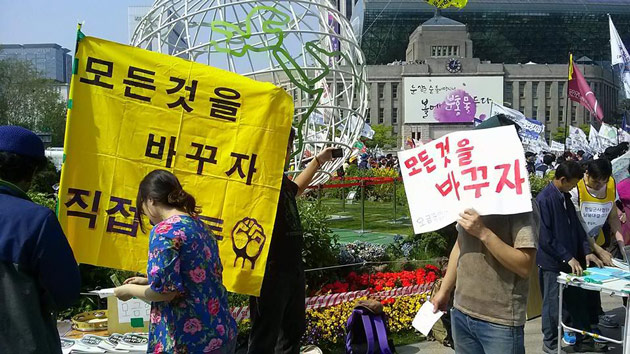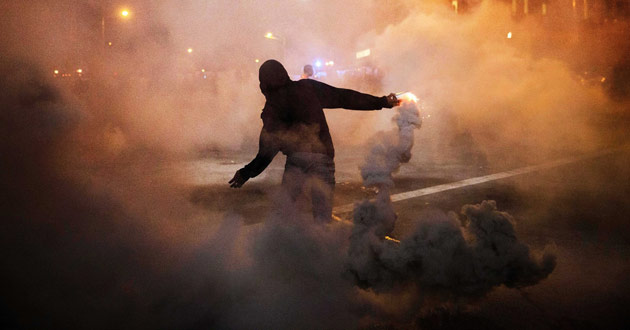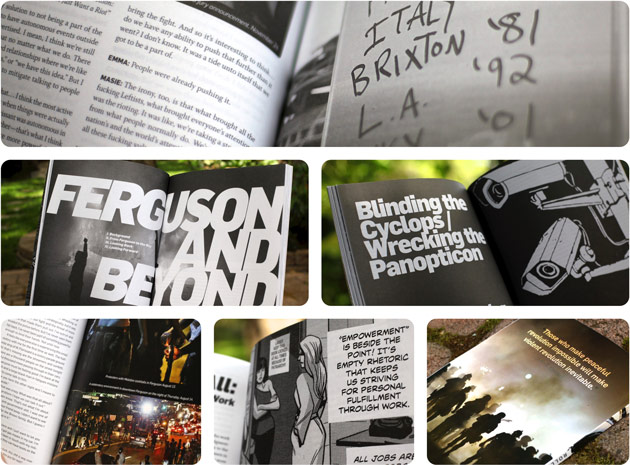#40: Struggles Against White Supremacy and Police Since Ferguson – It’s been a year since rage over Michael Brown’s murder catalyzed an anti-racist and anti-police rebellion that spread from Ferguson around the country. How can anarchists interpret the trajectory of the struggles against white supremacy that have unfolded over the last year? In Episode 40 of The Ex-Worker, we discuss the current state of police violence and both institutional and autonomous white supremacy, alongside an analysis of how anti-racist and anti-police resistance developed from Ferguson to Baltimore to South Carolina. A listener weighs in on the risks of militarism, from the Iron Column in the Spanish Civil War to the militias in Rojava today. Comrades from Korea share updates on state repression and issue an exciting call for international solidarity, and Clara and Alanis discuss the politics of the term “terrorism” and how to undertake assertive resistance to state repression without resorting to sports metaphors.
You can download this and all of our previous episodes online. You can also subscribe in iTunes here or just add the feed URL to your podcast player of choice. Rate us on iTunes and let us know what you think, or send us an email to podcast@crimethinc.com. You can also call us 24 hours a day at 202–59-NOWRK, that is, 202–596–6975.















